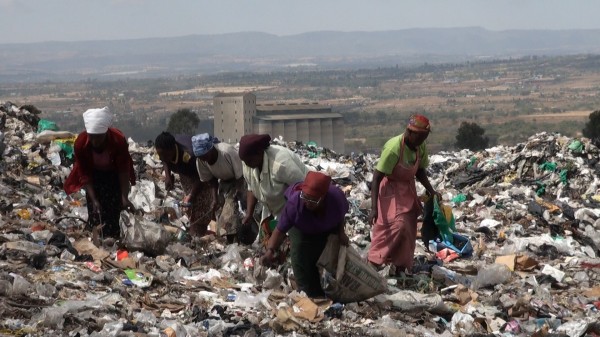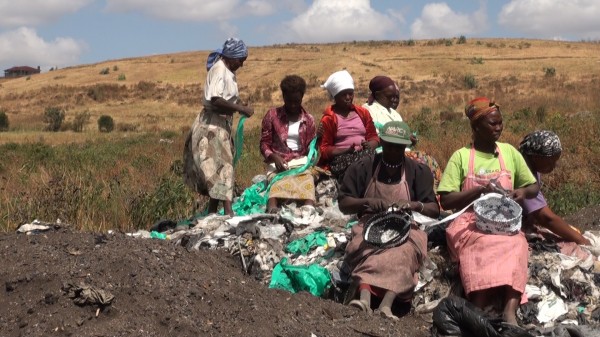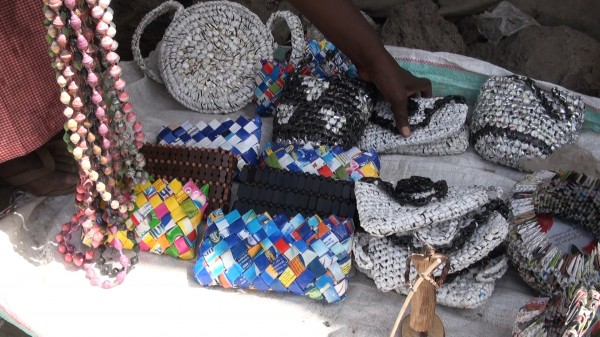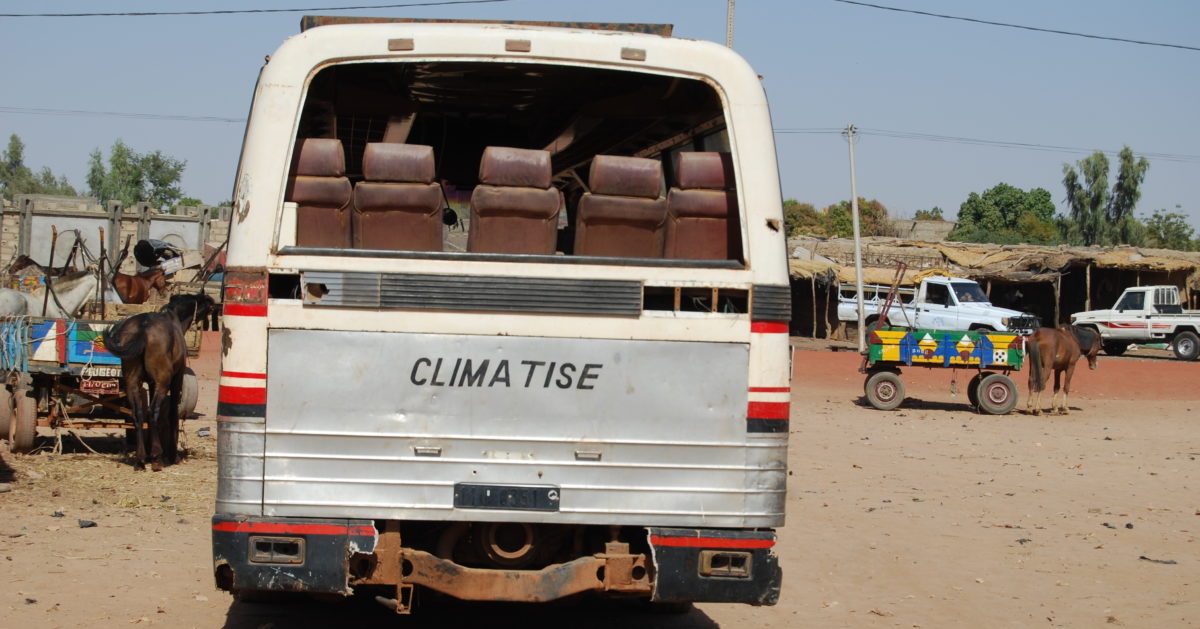Kenya-based video journalist Ruud Elmendorp recently compiled this report on the Women of Minyore, who live on a dump site near Nakuru, Kenya and make art out of various plastic waste:

“‘Here is where I come every morning to collect plastics from the garbage.’ Lucy Wambui is 50 and with a stick she grubs through the garbage in the Gioto Dumping Site in Nakuru in central Kenya. It is early morning and the stench of the waste already abhors. Lucy stays here with 30 other women forming the Minyore Women’s Group that sustains itself by selling art works made from garbage. ‘It’s not healthy living here, but we have nowhere else to go.’“
‘Gioto’ in the local Kikuyu language means garbage, and the dumping site is situated one mile outside the industrial town of Nakuru, the number four city in Kenya. Echoes of morning mist and smoke from fires mix above the garbage that lingers on the foot of the Menengai Hills. The women of Minyore are wading through the waste, looking for polythene bags and plastic soda bottles. Their name is derived from the Kikuyu word for plastic bag. Most of the women ended up here after their husbands left them behind because of drug abuse, alcoholism or having died from Aids.
The ladies collect plastic bags to make baskets and other art works for sale. Lucy Wambui is among the women and she holds a dozen of plastic bags. Some blue, black or printed in the affordable colors of a local supermarket. ‘We don’t like working here,’ she says. ‘But we are not educated and don’t have jobs. That’s the reason why we came here.’


‘When I came here I started thinking what work I could do,’ she says. ‘So I joined the women weaving baskets and making jewelry from plastic.’
Just outside the house a group of women is seated on a hill top weaving. Lucy picks some strands of plastic and joins them. ‘These baskets are very popular,’ she says while weaving. ‘They are used by mothers to go to the market, or on Sunday to carry a Bible to church. There is nowhere you can’t go with them.’ The products the women make vary from baskets, wallets, ladies bags and bracelets. They offer them on the dumping site on certain days in the week. ‘The best is to sell to tourists because then you can get a better price,’ admits Lucy. She is showing an improvised shop next to her house. A group of tourists with white legs shamelessly protruding from their shorts are admiring the products. Most of them are sent by tourist agencies and churches. ‘They come every Wednesday and that’s good for us,’ says Lucy. If she is lucky she can make 20 Euro per day. ‘When there are no tourists it can be much less.’
This self-help women’s group may just be one out of the many out there who are struggling to survive and trying to have an income based on urban waste. And while the various waste fractions suggest the introduction of a pyrolysis system or any other concept for urban waste handling, it is just remarkable how these women have managed to create a business where others just see waste. “Waste = Food”? Yes.


Thanks for sharing – GirlPower!
Hello – How can I purchase a purse from the women of Minyore? I do not live in Kenya.